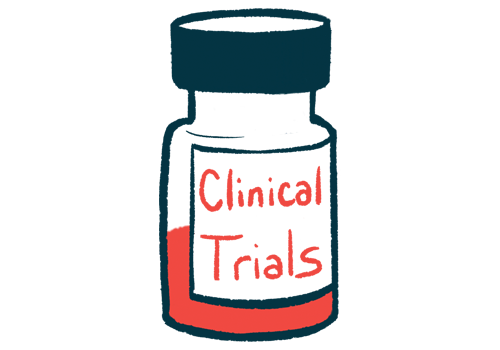LX1001, a one-time gene therapy for Alzheimer’s disease being developed by Lexeo Therapeutics, raised levels of the protective APOE2 protein in the cerebrospinal fluid (CSF), early data from an ongoing Phase 1/2 trial shows. Findings in a first patient group treated at low dose also showed the gene therapy reduced the levels of tau protein — a hallmark…
Category: Alzheimer’s
Trial of Oral Varoglutamstat Cleared to Take Place in China
A clinical trial application for varoglutamstat, or PQ912, an investigational therapy for Alzheimer’s disease, was approved in China, its developers, Vivoryon Therapeutics and Simcere Pharmaceutical Group, announced. “We are proud to have obtained [China’s Center for Drug Evaluation] CDE approval of our Clinical Trial Application of varoglutamstat which represents our strong commitment in the battle against…
Blood Test of Alzheimer’s Risk in Mild Dementia Patients OK’d in Europe
A biomarker blood test called AlzoSure Predict that can help to identify people with mild cognitive impairment who are likely progress to Alzheimer’s disease — years before symptoms are evident — has been approved for use in the European Union (EU) and the U.K., its marketer, Diadem, announced. “This first regulatory approval for AlzoSure Predict … represents…
Symposium Highlights Research, Care Disparities Among Latinos
Improved access to high-quality healthcare and research for Latinos living with Alzheimer’s disease and related dementia are needed, according to a summary report from the second Latinos & Alzheimer’s Symposium. Understanding underlying disease-related processes unique to Latino populations, and identifying social and environmental risk factors for this group also are required, the researchers noted. “By…
Fosgonimeton Shows Safety in Early Trial, Phase 3 Study Enrolling in US
Fosgonimeton, an experimental therapy Athira Pharma is developing to treat Alzheimer’s disease, was well-tolerated overall in a Phase 1 clinical trial that included Alzheimer’s patients as well as healthy volunteers. “These encouraging results showed a positive safety and tolerability profile of fosgonimeton across a wide dose range,” Hans Moebius, MD, PhD, Athira’s chief medical officer, said…
Older Adults Aware of Alzheimer’s, But Know Little About Aduhelm
Although the vast majority of older Americans are concerned about Alzheimer’s disease, most are unaware of Aduhelm (aducanumab), the recently approved treatment for the disease, according to a survey study. “The contrast between older Americans who were very concerned about developing Alzheimer’s disease and those that actually knew anything about the drug was surprising,” Julie…
Anti-pTau Vaccine Induces Intended Immune Response in Ongoing Trial
ACI-35.030, an experimental anti-tau vaccine that AC Immune is developing for Alzheimer’s disease, was able to potently induce an immune response as intended and was generally well-tolerated, according to 10-week interim data from a Phase 1/2 clinical trial. “These latest interim results add to the robust clinical dataset supporting plans for continued late-stage development,” Andrea…
Alzheimer’s Association Funds Research to Improve Lives of Caregivers
The Alzheimer’s Association is funding research that aims to improve the lives of caregivers as well as the dementia patients they serve. Amanda Leggett, PhD, a research assistant professor at the University of Michigan, has been awarded $150,000 by the U.S. nonprofit’s Dementia Care Provider Roundtable (AADCPR) to support an investigation into different caregiving styles.…
Nuplazid Resubmitted for FDA Approval for Psychosis in Alzheimer’s
Acadia Pharmaceuticals has resubmitted an application to the U.S. Food and Drug Administration (FDA) seeking approval of Nuplazid (pimavanserin) for hallucinations and delusions associated with psychosis in Alzheimer’s disease. The announcement from Acadia comes less than a year after the FDA rejected the company’s original application for Nuplazid to treat the broader category of dementia-related…
Blood From Active Mice Appears to Benefit Brains of Sedentary Peers
Blood from “runner” mice can boost cognition and memory, and lessen brain inflammation — a key feature seen in people with neurodegenerative diseases, such as Alzheimer’s — when transferred into sedentary mice, a study shows. The benefits of “exercised” blood was linked to high levels of the clusterin protein, an inhibitor of the complement signaling…











